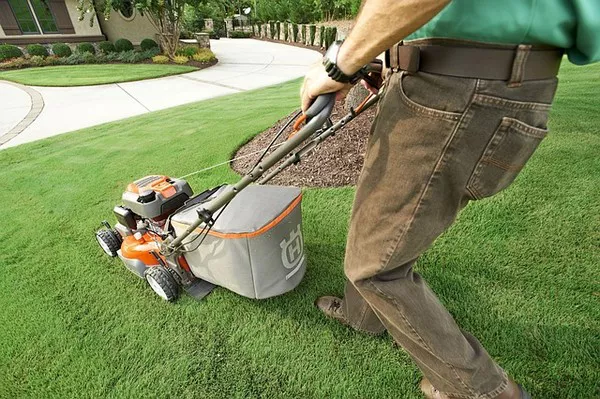A well-maintained lawn can be a source of pride for homeowners, and a key tool in achieving that lush, green expanse is the trusty lawn mower. Whether you have a small urban lawn or a sprawling rural landscape, choosing the right type of fuel for your lawn mower is essential to ensure optimal performance and longevity. In this comprehensive guide, we will explore the various types of gas for lawn mowers, their advantages and disadvantages, and important considerations to help you make an informed choice.
The Basics of Lawn Mower Fuel
Most conventional lawn mowers, both push and riding models, rely on internal combustion engines that run on gasoline. The type of gasoline you use in your mower can significantly impact its efficiency, emissions, and overall performance. There are generally two main types of gasoline to consider: regular unleaded gasoline and ethanol-blended gasoline.
Regular Unleaded Gasoline
Regular unleaded gasoline, commonly referred to as E0 (containing 0% ethanol), is the traditional and preferred fuel for most lawn mowers. This type of gasoline is readily available at gas stations across the country and is generally considered the safest and most compatible choice for small engines. It has several advantages:
a. Stability: E0 gasoline has a longer shelf life than ethanol-blended fuels, which means it is less likely to deteriorate during storage. This is important for seasonal lawn mowers that may sit unused for extended periods.
b. Fewer Engine Deposits: E0 gasoline tends to produce fewer carbon deposits in the engine, leading to cleaner and more reliable operation.
c. Optimal Performance: Most lawn mower manufacturers recommend using E0 gasoline to ensure the best performance and longevity of their engines.
However, there are some downsides to using E0 gasoline:
a. Environmental Impact: E0 gasoline may have a slightly higher environmental impact compared to ethanol-blended fuels, as it contains no renewable biofuels.
b. Cost: E0 gasoline can be more expensive than ethanol-blended options due to the lack of government subsidies for ethanol production.
Ethanol-Blended Gasoline
Ethanol-blended gasoline, often referred to as E10 (containing up to 10% ethanol), is an alternative fuel option for lawn mowers and other small engines. It is a mix of gasoline and ethanol, a renewable biofuel made from corn or sugarcane. Here are some key points to consider when using E10 gasoline:
a. Renewable Energy: Ethanol-blended gasoline is considered a more environmentally friendly option because it includes a renewable resource (ethanol) that reduces reliance on fossil fuels.
b. Government Subsidies: Ethanol production is often subsidized by governments, making E10 gasoline more affordable at the pump.
c. Octane Boost: Ethanol has a higher octane rating than pure gasoline, which can provide a slight performance boost in some engines.
However, there are potential drawbacks to using E10 gasoline:
a. Ethanol’s Impact on Engines: Ethanol can be corrosive to certain engine components, potentially leading to damage over time. This is particularly concerning for older lawn mowers with carburetors and fuel systems not designed for ethanol.
b. Shorter Shelf Life: Ethanol-blended gasoline has a shorter shelf life than E0 gasoline, making it more prone to deterioration during storage. This can result in engine problems when starting up after a long period of inactivity.
c. Lower Energy Content: Ethanol has less energy per gallon compared to gasoline, which can result in reduced fuel efficiency and power output in some engines.
Choosing the Right Fuel for Your Lawn Mower
Now that we’ve explored the two main types of gasoline for lawn mowers, let’s discuss how to make the right choice for your specific mower and needs.
Check the Manufacturer’s Recommendations: Always start by consulting the owner’s manual of your lawn mower. Manufacturers often provide specific guidelines on the type of fuel to use. Ignoring these recommendations can lead to warranty issues and reduced performance.
Consider the Age of Your Lawn Mower: If you have an older lawn mower that was not designed to run on ethanol-blended fuels, it’s advisable to stick with E0 gasoline to prevent potential engine damage.
Evaluate Your Usage Patterns: If you use your lawn mower frequently and don’t store it for extended periods, E10 gasoline may be a suitable choice due to its lower cost and environmental benefits. However, if your mower sits unused for months at a time, E0 gasoline is a safer bet.
Environmental Concerns: If you are environmentally conscious and wish to reduce your carbon footprint, E10 gasoline may align better with your values due to its renewable ethanol content.
Fuel Availability: Consider the availability of E0 and E10 gasoline in your area. Some regions may have limited access to E0 gasoline, making E10 the more practical choice.
Fuel Storage: If you have concerns about fuel deterioration during storage, you can use fuel stabilizers designed to extend the shelf life of ethanol-blended gasoline.
Conclusion
Choosing the right type of gas for your lawn mower is a crucial decision that can impact the performance, longevity, and environmental footprint of your equipment. While E0 gasoline is the traditional choice for most small engines, E10 gasoline offers environmental benefits and cost savings but may not be suitable for older mowers. Always follow the manufacturer’s recommendations, evaluate your usage patterns, and consider environmental factors when making your decision. With the right fuel, your lawn mower will continue to help you maintain a beautiful and healthy lawn for years to come.

